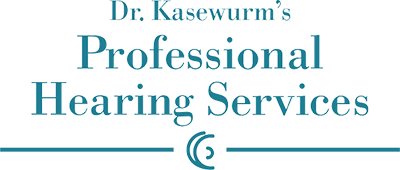
Musicians rock. They bring so much happiness to our lives with their songs. But music is a lot more powerful when it’s loud, and that can be a hearing risk. The musicians themselves are at an increased risk of hearing damage since they are exposed to loud music just about every day.
As you get older, you’ll still want to be capable of enjoying your favorite music whether you’re a musician or not. For musicians, preserving their hearing is the key to a long and successful career. For the rest of us, ear protection is the key to a lifetime of musical enjoyment and enrichment.
Oftentimes it can be surprising how loud music can be
Most people would say that a jet engine is really loud.
But what about music? People might not be so quick to answer that question if you ask them if a violin or acoustic guitar is loud. Usually, when they hear the answer, they’re pretty surprised: that music is certainly loud! Your ears can even be damaged by classical music which can reach fairly loud volumes.
Sounds higher than 90 dB can be created by a violin, for instance. A leaf blower is about this loud. In Europe, for instance, they have laws that require ear protection for anyone who works in a setting where there is noise louder than 85 dB.
And your hearing can be seriously compromised over time if you’re working with music every day, especially if you don’t use hearing protection.
How can you protect your hearing?
Okay, musicians who want to keep their hearing for years to come need to safeguard their ears. So what can musicians do to protect their ears and still enjoy the music they enjoy so much?
Well, here are a couple of easy things musicians can do:
- Track your volume: Knowledge is power, right? So it follows that you should always know what volume of sound you’re exposing your ears to. Monitoring the volume on amps and PA systems is one factor. But you can also invest in a decibel meter app for your cellphone to make it convenient to track the real-world volume levels your ears are encountering from day-to-day. If the meter reads above 85dB regularly, you’ll have to address this.
- Take breaks: Your ears are like any other part of your body: they can become exhausted and will frequently benefit from a break. So take regular breaks from the noise. By doing this, noises won’t overpower and damage your ears. With regard to hearing, how long you’re exposed is nearly as significant as how high the volume is. Taking breaks can be the difference between just the right amount of stimulation and too much!
Wear hearing protection
Needless to say, the single most beneficial thing you can do to safeguard your ears is simple: using ear protection of some kind. Many musicians are hesitant to use ear protection because they’re concerned it will impact the clarity of sound they hear, in addition to muting the volume. That’s not always true, depending on which type of ear protection you use.
- Ear plugs made primarily for musicians: Most individuals are likely acquainted with disposable ear plugs. They don’t always fit well, but they do reliably block a lot of sound. They’re cheap, easy to come by, and easy to dispose of. And they aren’t best suited for musicians. However, by spending just a little more money, you can buy high-quality earplugs designed specifically for musicians. These earplugs use fancy manufacturing tricks (mostly they’re made out of very distinct materials and are designed to conform nicely to the ear) to maintain audio clarity while decreasing the noise you experience by around 20dB. For musicians who need a moderate level of protection on a budget, this option is perfect.
- Electronic earplugs: The same basic functionality found in non-electronic earplugs can be found in electronic earplugs. Most of the sound will be blocked by the earplug itself. But the earplug itself will send in the sound you hear. For people who work in really noisy settings and need better control of the volume, these earplugs are ideal.
- In-ear monitors: Most music is electronic nowadays, or at least amplified by electronics. An in-ear monitor takes those electronic signals and conveys them directly to a device placed in your ear (called an in-ear monitor). It’s like a special little speaker for your ear, and the majority of monitors can block out sound from the outside world (thanks to a fairly tight fit and specialized design). This means you can hear exactly how you sound, at a volume you control. In-ear monitors are beneficial for individuals who work primarily with electronically amplified instruments.
Protect your ears, and protect your career
It’s never too late to take measures to protect your hearing, but it’s definitely a good plan to start sooner rather than later. With options available at just about every price point, there are simple ways for everyone to safeguard their hearing and their future. Remember that you’re investing in your career by utilizing hearing protection for musicians. By doing so, you will be able to enjoy creating music for as long as you want to.
Give us a call so we can help you get started.

